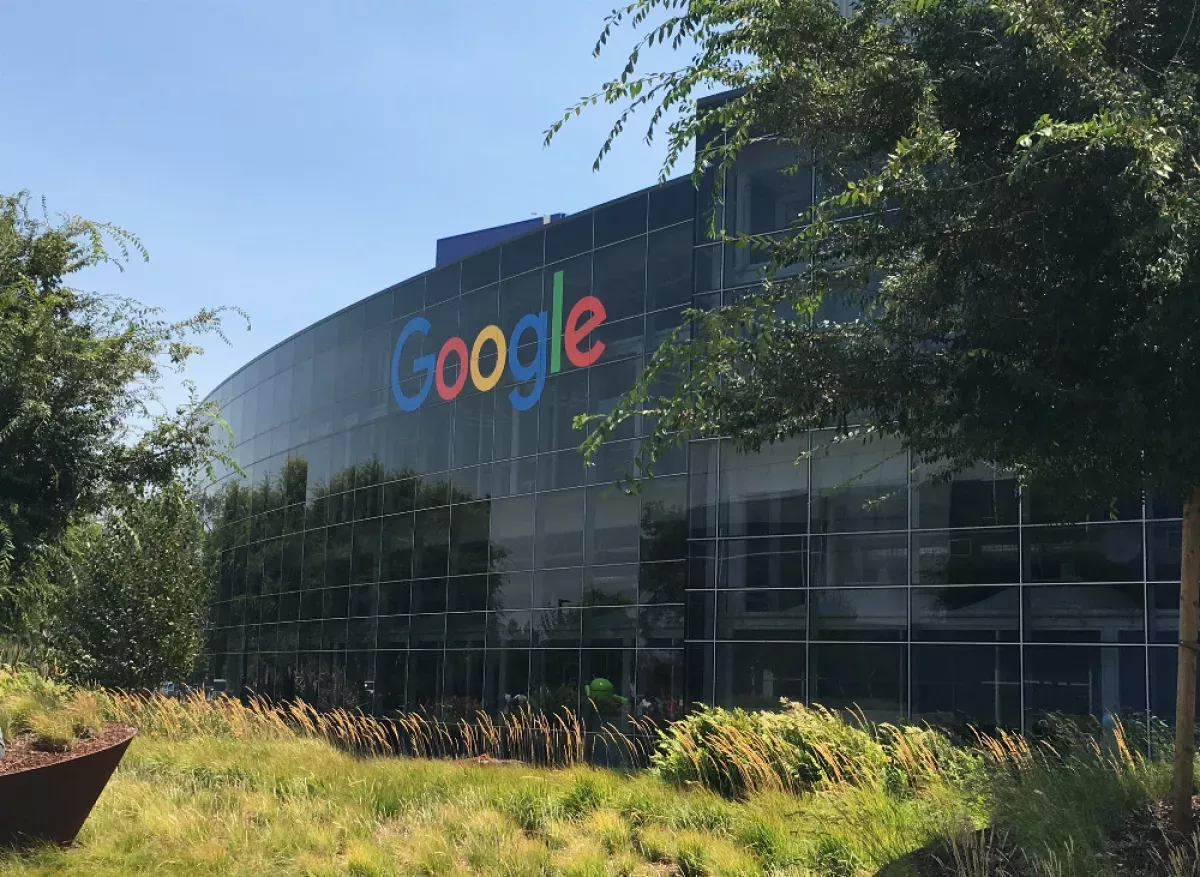Google LLC is a multinational technology company specializing in online advertising, search, cloud computing, software, quantum computing, e-commerce, consumer electronics, and AI. Considered one of the world's most powerful and valuable brands, it is a component of the Big Tech group alongside Amazon, Apple, Meta, and Microsoft. Google operates as a subsidiary of Alphabet Inc.
January 1996: Google Begins as Research Project
In January 1996, Google began as a research project by Larry Page and Sergey Brin at Stanford University.
1996: RankDex developed by Robin Li
In 1996, Robin Li developed RankDex, with Larry Page's PageRank patent including a citation to Li's earlier RankDex patent.
February 1998: Ram Shriram invested in Google
In February 1998, Ram Shriram invested $250,000 in Google.
August 1998: Initial Investment from Andy Bechtolsheim
In August 1998, Google received an initial investment of $100,000 from Andy Bechtolsheim, co-founder of Sun Microsystems.
September 4, 1998: Google Founded
On September 4, 1998, Google was founded by Larry Page and Sergey Brin.
1998: Additional Investments
After some additional, small investments through the end of 1998 to early 1999.
1998: First paper about Google Search Engine
In 1998, Rajeev Motwani and Terry Winograd co-authored with Page and Brin the first paper about the project, describing PageRank and the initial prototype of the Google search engine.
1998: Google Search Engine set up in Susan Wojcicki's garage
In 1998, the Google Search engine was set up in Susan Wojcicki's garage.
1998: Google retroactively offsets all carbon emissions since its foundation
In September 2020, Google announced it had retroactively offset all of its carbon emissions since the company's foundation in 1998.
1998: Google Doodles
Since 1998, Google has been designing special, temporary alternate logos to place on their homepage to celebrate holidays, events, achievements and people.
March 1999: Google Moves Offices to Palo Alto
In March 1999, Google moved its offices to Palo Alto, California.
June 7, 1999: $25 Million Round of Funding Announced
On June 7, 1999, a new $25 million round of funding was announced, with major investors including Kleiner Perkins and Sequoia Capital.
April 1, 2000: First April Fools' Day Joke
On April 1, 2000, Google's first April Fools' Day joke was Google MentalPlex, which allegedly featured the use of mental power to search the web.
June 2000: Google Becomes Default Search Engine for Yahoo!
In June 2000, it was announced that Google would become the default search engine provider for Yahoo!, replacing Inktomi.
2000: Dennis Hwang designs a logo for Bastille Day
In 2000, Larry and Sergey asked then-intern Dennis Hwang to design a logo for Bastille Day.
2001: Eric Schmidt Hired as CEO
In 2001, Eric Schmidt was hired as the chairman and CEO of Google.
October 2002: First use of the verb "google" on television
In October 2002, the first use of the verb "google" on television appeared in an episode of Buffy the Vampire Slayer.
2003: Google Leases the Googleplex
In 2003, Google leased an office complex from Silicon Graphics in Mountain View, California, which became known as the Googleplex.
2003: Google's Lobbying Ranking
In 2003, Google ranked 213th in lobbying spending.
August 19, 2004: Google Becomes a Public Company
On August 19, 2004, Google became a public company via an initial public offering (IPO).
2004: Google forms Google.org
In 2004, Google formed the not-for-profit philanthropic Google.org, with a start-up fund of $1 billion.
2004: Google IPO
In 2004, Google went public via an initial public offering (IPO).
2005: Launch of Google Earth
In 2005, Google Earth was launched, enabling users to view high-definition satellite imagery worldwide via downloadable client software.
2005: Google starts developing its own server designs
In 2005, Google started developing its own server designs, which were revealed in 2009.
2005: Google's "Don't Be Evil" Philosophy Questioned
In 2005, articles in The New York Times and other sources suggested that Google was losing its anti-corporate, "no evil" philosophy, leading to the designation of a Chief Culture Officer to maintain the company's culture.
2005: Innovation Time Off
In 2005, half of all new product launches in the second half of the year originated from the Innovation Time Off.
2005: 700% Increase in Profit
In the third quarter of 2005, Google reported a 700% increase in profit, attributed to companies shifting advertising from traditional media to the Internet.
October 9, 2006: Google Acquires YouTube
On October 9, 2006, Google acquired YouTube for $1.65 billion in Google stock.
October 2006: Google plans to install solar panels for campus energy needs
In October 2006, Google announced plans to install thousands of solar panels to provide up to 1.6 Megawatt of electricity, enough to satisfy approximately 30% of the campus' energy needs.
November 2006: Google opens offices on Carnegie Mellon's campus
In November 2006, Google opened offices on Carnegie Mellon's campus in Pittsburgh, focusing on shopping-related advertisement coding and smartphone applications and programs.
2006: Advertising Revenues Reported
For the 2006 fiscal year, Google reported $10.492 billion in total advertising revenues and $112 million in licensing and other revenues.
2006: Google moves into office space in Manhattan
In 2006, Google moved into approximately 300,000 square feet of office space at 111 Eighth Avenue in Manhattan, New York City, which houses its largest advertising sales team.
2006: Scott Hassan founded Willow Garage
In 2006, Scott Hassan founded the company Willow Garage.
2006: Verb "google" added to dictionaries
In 2006, the verb "google" was added to the Merriam Webster Collegiate Dictionary and the Oxford English Dictionary.
March 2007: Google hosts first Julia Robinson Mathematics Festival
In March 2007, Google, in partnership with the Mathematical Sciences Research Institute (MSRI), hosted the first Julia Robinson Mathematics Festival at its headquarters in Mountain View.
July 20, 2007: Google Bids on Wireless-Spectrum Auction
On July 20, 2007, Google bids $4.6 billion for the wireless-spectrum auction by the FCC.
October 31, 2007: Google Shares Hit $350
On October 31, 2007, Google shares hit $350 for the first time, driven by strong sales and earnings in the online advertising market.
2007: Google's Tax Avoidance Strategies
Between 2007 and 2010, Google saved $3.1 billion in taxes using techniques that involved shuttling non-U.S. profits through Ireland, the Netherlands, and then Bermuda.
2007: April Fools' Day Joke: TiSP
In 2007, Google announced a free Internet service called TiSP, or Toilet Internet Service Provider, as an April Fool's joke.
2007: Ranked First in Fortune Magazine's List
In 2007, Google ranked first in Fortune magazine's list of the best companies to work for.
2007: Google aims for carbon neutrality in operations
Since 2007, Google has aimed for carbon neutrality in regard to its operations.
March 11, 2008: Google Acquires DoubleClick
On March 11, 2008, Google acquired DoubleClick for $3.1 billion.
2008: Google announces "project 10"
In 2008, Google announced its "project 10", which accepted ideas for how to help the community and then allowed Google users to vote on their favorites.
2008: Ranked First in Fortune Magazine's List
In 2008, Google ranked first in Fortune magazine's list of the best companies to work for.
2009: Google allegedly joined the PRISM program
According to unnamed sources, Google joined the PRISM program in 2009.
2009: Complaint Filed Against Google
In 2009, British firm Foundem filed a complaint that triggered the case that concluded with a €2.4 billion fine imposed on Google in September 10, 2024.
2009: Ranked Fourth in Fortune Magazine's List
In 2009, Google ranked fourth in Fortune magazine's list of the best companies to work for.
2009: Google reveals its server designs
In 2009, Google revealed its server designs, which were developed since 2005.
2009: Google hires goats to mow lawn
In Spring 2009, Google hired a herd of 200 goats for a week from California Grazing to mow their lawn, as an eco-friendly alternative.
January 2010: Release of Nexus One
In January 2010, Google released the Nexus One, which was the first Android phone under the Google brand.
February 2010: Announcement of Google Fiber
In February 2010, Google announced the Google Fiber project, an experimental plan to build an ultra-high-speed broadband network.
February 2010: Federal Energy Regulatory Commission grants authorization to buy and sell energy
In February 2010, the Federal Energy Regulatory Commission granted Google an authorization to buy and sell energy at market rates.
July 2010: Google signs agreement with Iowa wind farm
In July 2010, Google signed an agreement with an Iowa wind farm to buy 114 megawatts of power for 20 years.
2010: YouTube allegedly joined the PRISM program
According to unnamed sources, YouTube joined the PRISM program in 2010.
2010: Google's Tax Avoidance Strategies
Between 2007 and 2010, Google saved $3.1 billion in taxes using techniques that involved shuttling non-U.S. profits through Ireland, the Netherlands, and then Bermuda.
2010: Google buys building housing Manhattan headquarters
In 2010, Google purchased the building housing its headquarters at 111 Eighth Avenue in Manhattan, New York City, in a deal valued at around $1.9 billion.
2010: Ranked Fourth in Fortune Magazine's List
In 2010, Google ranked fourth in Fortune magazine's list of the best companies to work for.
2010: Google's total carbon emissions
In 2010, Google's total carbon emissions were just under 1.5 million metric tons, mostly due to fossil fuels that provide electricity for the data centers.
May 2011: Monthly Unique Visitors Surpass One Billion
In May 2011, the number of monthly unique visitors to Google surpassed one billion for the first time.
September 2011: Google discloses electricity usage
In September 2011, Google disclosed that it "continuously uses enough electricity to power 200,000 homes".
2011: Google Handling 3 Billion Searches Per Day
By 2011, Google was handling approximately 3 billion searches per day.
2011: Revenue Derived from Advertising
In 2011, 96% of Google's revenue was derived from its advertising programs.
2011: Google donates to International Mathematical Olympiad
In 2011, Google donated €1 million to International Mathematical Olympiad to support the next five annual International Mathematical Olympiads (2011–2015).
May 2012: Google Acquires Motorola Mobility
In May 2012, Google acquired Motorola Mobility for $12.5 billion.
July 2012: Google launches "Legalize Love" campaign
In July 2012, Google launched a "Legalize Love" campaign in support of gay rights.
July 2012: Marissa Mayer's departure
Until July 2012, Marissa Mayer was Google's vice-president of Search Products and User Experience.
September 24, 2012: Launch of Google for Entrepreneurs
On September 24, 2012, Google launched Google for Entrepreneurs, a not-for-profit business incubator that provides startups with co-working spaces, workshops, conferences, and mentorships.
2012: Google generates $50 billion in annual revenue for the first time.
In 2012, Google generated $50 billion in annual revenue for the first time.
2012: Google's Campaign Donations Ranking
In 2012, Google ranked 2nd in campaign donations of technology and Internet sections.
2012: Ranked First in Fortune Magazine's List
In 2012, Google ranked first in Fortune magazine's list of the best companies to work for.
2012: French Investigation into Google's Transfer Pricing Practices
In 2012, Google's transfer pricing practices reportedly sparked a French investigation.
January 2013: Larry Page comments on 2012 results
In January 2013, then-CEO Larry Page commented on Google's strong finish to 2012, noting a 36% year-on-year revenue increase.
June 2013: Google Acquires Waze
In June 2013, Google acquired Waze for $966 million.
June 2013: Google Identified as Participant in PRISM Surveillance Program
In June 2013, following media reports about PRISM, Google was identified as one of the technology companies participating in the NSA's electronic surveillance program.
July 2013: Introduction of Chromecast
In July 2013, Google introduced the Chromecast dongle, which enables users to stream content from their smartphones to televisions.
September 2013: Google to purchase electricity from Happy Hereford wind farm
In September 2013, Google announced it would purchase all the electricity produced by the not-yet-built 240-megawatt Happy Hereford wind farm.
September 19, 2013: Google Announces Calico
On September 19, 2013, Google announced the launch of a new company, called Calico, to focus on the challenge of ageing and associated diseases.
October 2013: Google's Consolidated Revenue for Third Quarter
In mid-October 2013, Google's consolidated revenue for the third quarter was reported as $14.89 billion, a 12 percent increase compared to the previous quarter.
November 2013: Google announces plans for a new London headquarters
In November 2013, Google announced plans for a new London headquarters, a 1 million square foot office able to accommodate 4,500 employees.
2013: Google Ranked Second Most Valuable Brand by Interbrand
According to Interbrand's annual Best Global Brands report, Google has been the second most valuable brand in 2013.
2013: Class action filed against Google for "no cold call" agreements
In 2013, Google and other Silicon Valley companies faced a class action lawsuit for allegedly engaging in "no cold call" agreements, which restrained the recruitment of high-tech employees.
2013: Google's Lobbying Ranking
In 2013, Google ranked 5th in lobbying spending.
2013: Gender discrimination lawsuit
In 2013, a gender discrimination lawsuit involving 15,550 female employees in California was filed against Google.
January 2014: Google's market capitalization grows to $397 billion
By January 2014, Google's market capitalization had grown to $397 billion.
January 26, 2014: Google to Acquire DeepMind Technologies
On January 26, 2014, Google announced it had agreed to acquire DeepMind Technologies for $400 million.
June 2014: Announcement of Google Cardboard
In June 2014, Google announced Google Cardboard, a simple cardboard viewer for viewing virtual reality (VR) media using a smartphone.

2014: Google Ranked Second Most Valuable Brand by Interbrand
According to Interbrand's annual Best Global Brands report, Google has been the second most valuable brand in 2014.
2014: Key trends of Google
Until 2014, the key trends of Google were published.
April 2015: Announcement of Project Fi
In April 2015, Google announced Project Fi, a mobile virtual network operator, that combines Wi-Fi and cellular networks.
May 2015: Google announces intention to create campus in Hyderabad, India
In May 2015, Google announced its intention to create its own campus in Hyderabad, India, which is reported to be the company's largest outside the United States, accommodating 13,000 employees.
August 10, 2015: Google Announces Reorganization as Alphabet Inc.
On August 10, 2015, Google announced plans to reorganize its various interests as a conglomerate named Alphabet Inc. Google became Alphabet's largest subsidiary, and Sundar Pichai became CEO of Google, replacing Larry Page.
October 2015: Alphabet Corporate Code of Conduct
In October 2015, a related motto, "Do the right thing", was adopted in the Alphabet corporate code of conduct.
October 24, 2015: Sundar Pichai Appointed CEO of Google
On October 24, 2015, Sundar Pichai was appointed CEO of Google, replacing Larry Page, who became the CEO of Alphabet.
2015: Google Ranked Second Most Valuable Brand by Interbrand
According to Interbrand's annual Best Global Brands report, Google has been the second most valuable brand in 2015.
2015: Financial figures published for Alphabet Inc.
From the 2015 financial year, figures are published for Alphabet Inc.
2015: Google donates to International Mathematical Olympiad
In 2011, Google donated €1 million to International Mathematical Olympiad to support the next five annual International Mathematical Olympiads (2011–2015).
2015: DeepMind's AlphaGo defeats top human pro
In 2015, DeepMind's AlphaGo became the first computer program to defeat a top human pro at the game of Go.
2015: Alphabet Inc. Ticker Symbols
Since the fourth quarter of 2015, the GOOGL and GOOG ticker symbols refer to Alphabet Inc., Google's holding company.
January 2016: Settlement with the UK
In January 2016, Google reached a settlement with the UK to pay £130m in back taxes plus higher taxes in the future.
March 15, 2016: Introduction of Google Analytics 360 Suite
On March 15, 2016, Google announced the Google Analytics 360 Suite, an integrated data and marketing analytics product designed for enterprise-class marketers.
July 2016: Gartner estimates Google has 2.5 million servers
In a July 2016 report, Gartner estimated that Google had 2.5 million servers in its data centers.
October 2016: Announcement of Daydream View
In October 2016, Google announced Daydream View, a lightweight VR viewer for smartphones to view VR media.
December 2016: Google announces 100% renewable energy commitment
In December 2016, Google announced that—starting in 2017—it would purchase enough renewable energy to match 100% of the energy usage of its data centers and offices.
2016: Google Ranked Second Most Valuable Brand by Interbrand
According to Interbrand's annual Best Global Brands report, Google has been the second most valuable brand in 2016.
2016: Google Changed Contract Practices
In 2016, Google changed its contract practices, as noted during the September 18, 2024, appeal against a €1.49 billion antitrust fine from the European Union.
June 2017: Google submits plans for new London headquarters
In June 2017, Google submitted plans for its new London headquarters to the Camden Council.
June 27, 2017: Record Fine from European Union
On June 27, 2017, the company received a record fine of €2.42 billion from the European Union for promoting its own shopping comparison service at the top of search results.
August 8, 2017: Google Fires Employee James Damore
On August 8, 2017, Google fired employee James Damore after he distributed a memo with harmful gender stereotypes. Google CEO Sundar Pichai accused Damore of violating company policy.
November 2017: Google buys 536 megawatts of wind power
In November 2017, Google bought 536 megawatts of wind power, reaching 100% renewable energy.
2017: Google will purchase enough renewable energy to match 100% of its data centers and offices energy usage
In 2017, Google began purchasing enough renewable energy to match 100% of the energy usage of its data centers and offices.
2017: Google Channeled Money to Bermuda to Reduce Tax Bill
In 2017, Google channeled $22.7 billion from the Netherlands to Bermuda to reduce its tax bill.
2017: Google for Jobs
In 2017, Google for Jobs, an enhanced search feature, aggregates job listings from job boards and career sites.
2017: Lawsuit Accuses Google of Underpaying Female Employees
In 2017, Google was sued by three women accusing the company of violating California's Equal Pay Act by underpaying its female employees, citing a $17,000 wage gap.
2017: Google Worked with the United States Department of Defense on Project Maven
In 2017, Google worked with the United States Department of Defense on drone software through Project Maven, which could be used to improve the accuracy of drone strikes.
January 8, 2018: Lawsuit alleges discrimination against conservative views
On January 8, 2018, a lawsuit was filed against Google alleging discrimination against individuals based on their "conservative political views, male gender, and/or Caucasian or Asian race".
March 2018: Alphabet buys Chelsea Market building for $2.4 billion
In March 2018, Google's parent company Alphabet purchased the Chelsea Market building in New York City for $2.4 billion.
April 2018: Google Employees Protest Project Maven
In April 2018, thousands of Google employees signed a letter urging CEO Sundar Pichai to end the company's contract with the Pentagon related to Project Maven, due to its controversial nature.
July 2018: Google accused of slowing down YouTube on Firefox
In July 2018, Mozilla program manager Chris Peterson accused Google of intentionally slowing down YouTube performance on Firefox.
July 18, 2018: European Commission Fine for Antitrust Rules Breach
On July 18, 2018, the European Commission fined Google €4.34 billion for breaching EU antitrust rules by constraining Android device manufacturers and network operators to ensure traffic on Android devices went to Google's search engine.
August 2018: Report on Google's censored search engine for China
According to Ryan Gallagher of The Intercept, in August 2018, Google was developing a censored version of its search engine (known as Dragonfly) for the People's Republic of China.
October 8, 2018: Class Action Lawsuit Filed Over Google+ Data Exposure
On October 8, 2018, a class action lawsuit was filed against Google and Alphabet due to exposed "non-public" Google+ account data resulting from a bug that allowed app developers to access users' private information.
October 9, 2018: Google Appeals Antitrust Fine
On October 9, 2018, Google confirmed that it had appealed the €4.34 billion fine to the General Court of the European Union.
November 2018: Google announces plan to expand New York City office
In November 2018, Google announced plans to expand its New York City office to accommodate 12,000 employees.
2018: Google ran an anti-union campaign called Project Vivian
Between 2018 and 2020, Google ran Project Vivian, an anti-union campaign aimed to "convince them (employees) that unions suck".
2018: Project Nightingale Started Secretively
In 2018, Google reportedly began Project Nightingale secretively with St. Louis-based healthcare company Ascension, as reported by The Wall Street Journal.
January 21, 2019: Record Fine from French Data Regulator
On January 21, 2019, French data regulator CNIL imposed a record €50 million fine on Google for breaching the European Union's General Data Protection Regulation by failing to sufficiently inform users of its methods for collecting data to personalize advertising.
March 2019: Google used about 121,000 temporary workers and contractors
As of March 2019, Google used about 121,000 temporary workers and contractors, in addition to its full-time employees.
March 20, 2019: European Commission Fines Google for Anti-Competitive Practices
On March 20, 2019, the European Commission imposed a €1.49 billion fine on Google for preventing rivals from competing fairly in the online advertising market by imposing anti-competitive contractual restrictions on third-party websites.
April 2019: Accusation of sabotaging Firefox browser
In April 2019, former Mozilla executive Jonathan Nightingale accused Google of intentionally and systematically sabotaging the Firefox browser over the past decade in order to boost adoption of Google Chrome.
September 2019: Google announces $2 billion wind and solar investment
In September 2019, Google's chief executive announced plans for a $2 billion wind and solar investment, the biggest renewable energy deal in corporate history.
November 15, 2019: Completion of the Curie submarine cable
On November 15, 2019, Google completed the Curie submarine communications cable connecting California with Chile.
November 2019: Project Nightingale Investigation
In November 2019, the Office for Civil Rights of the United States Department of Health and Human Services initiated an investigation into Project Nightingale, focusing on potential HIPAA violations related to the mass collection of individuals' medical records.
December 3, 2019: Sundar Pichai became the CEO of Alphabet
On December 3, 2019, Sundar Pichai also became the CEO of Alphabet.
2019: Google Decided Not to Renew DoD Contract
In 2019, Google decided not to renew its contract with the Department of Defense, which was set to expire, following controversy over the Project Maven drone software project.
2019: Linwei Ding Hired at Google
In 2019, Linwei Ding was hired as a software engineer at Google, before being accused of stealing AI information from the company.
2019: DeGoogle campaign coalesces
In 2019, a hub for critics of Google dedicated to abstaining from using Google products coalesced in the Reddit online community /r/degoogle. Privacy activists highlight information about Google products and the associated incursion on personal privacy rights by the company.
2019: Free Online Courses for Technical Documentation
Since 2019, Google runs free online courses to help engineers learn how to plan and author technical documentation better.
January 25, 2020: Formation of Alpha Global, an international workers union of Google employees
On January 25, 2020, the formation of Alpha Global, an international workers union of Google employees, was announced, comprising 13 unions across 10 countries.
June 2020: $5 Billion Class-Action Lawsuit Filed Against Google
In June 2020, Google was hit with a $5 billion class-action lawsuit. Consumers alleged that Chrome's Incognito mode still collected user history.
July 2020: U.S. Congressional Hearings
In July 2020, U.S. Congressional hearings were held before the U.S. Department of Justice filed an antitrust lawsuit against Google on October 20, 2020.
July 2020: Settlement in Google+ Data Exposure Lawsuit
In July 2020, the litigation over the Google+ data exposure was settled for $7.5 million, with a payout to claimants of at least $5 each, with a maximum of $12 each.
September 2020: Google retroactively offsets all carbon emissions since 1998
In September 2020, Google announced it had retroactively offset all of its carbon emissions since the company's foundation in 1998.
September 30, 2020: Alphabet Inc. Employee Count
As of September 30, 2020, Alphabet Inc. had 132,121 employees, with over 100,000 working for Google.
October 2020: Google Workspace formerly G Suite
In October 2020, Google Workspace, formerly G Suite, became a monthly subscription offering for organizations and businesses providing access to Google's services with additional administrative tools and support.
October 2020: Google pledges to make hardware packaging plastic-free and recyclable by 2025
In October 2020, Google pledged to make the packaging for its hardware products 100% plastic-free and 100% recyclable by 2025.
October 20, 2020: U.S. Department of Justice Files Antitrust Lawsuit
On October 20, 2020, the United States Department of Justice filed an antitrust lawsuit against Google, alleging it illegally maintained its monopoly position in web search and search advertising.
2020: Planned operation of the Dunant submarine cable
In 2020, Google planned to begin operation of the Dunant submarine cable connecting the United States with France.
2020: Overhaul of Global Tax Structure
In 2020, Google stated that it had overhauled its global tax structure and consolidated its intellectual property holdings back to the U.S.
2020: FBI Used Geofence Warrant to Request Data from Google
In 2020, the FBI used a geofence warrant to request data from Google about Android devices near the Seattle Police Officers Guild building following an arson attempt during Black Lives Matter protests, raising privacy concerns.
March 2021: Federal Judge Denies Google's Request to Dismiss Incognito Lawsuit
In March 2021, a federal judge denied Google's request to dismiss the $5 billion class-action lawsuit, ensuring Google must face the charges that Chrome's Incognito browsing mode collects user history. The lawsuit alleged Google's CEO Sundar Pichai sought to keep users unaware of the issue.
2021: Court documents reveal anti-union campaign
In 2021, court documents revealed that between 2018 and 2020, Google ran Project Vivian, an anti-union campaign aimed to "convince them (employees) that unions suck".
January 2022: Google Ranked Second Most Valuable Brand by Forbes
As of January 2022, Forbes ranked Google as the second most valuable brand.
February 2022: Google announces $100 million fund for skills training and job placement
Also in February 2022, Google announced a $100 million fund to expand skills training and job placement for low-income Americans, in conjunction with non-profits Year Up, Social Finance, and Merit America.
February 2022: Google Ranked Fourth Most Valuable Brand by Interbrand
As of February 2022, Interbrand ranked Google as the fourth most valuable brand.
June 2022: Google Agrees to $118 Million Settlement in Gender Discrimination Lawsuit
In June 2022, Google agreed to a $118 million settlement to resolve a gender discrimination lawsuit involving 15,550 female employees in California since 2013. The settlement included hiring a third party to analyze hiring and compensation practices.
September 14, 2022: Google Loses Appeal of €4.125 Billion Fine
On September 14, 2022, Google lost the appeal of a €4.125 billion fine, which was ruled to be paid after it was proved by the European Commission that Google forced Android phone-makers to carry Google's search and web browser apps.
2022: Google Shared a $9 Billion Contract From the Pentagon for Cloud Computing
In 2022 Google shared a $9 billion contract from the Pentagon for cloud computing with Amazon, Microsoft, and Oracle.
2022: $22 Billion Payment to Apple
In 2022, Google reportedly paid Apple $22 billion to remain the default search engine on Safari.
2022: Google's Project Vivian to Discourage Unionization
In 2022, court documents from a National Labor Relations Board ruling suggested that Google sponsored a secretive project named Project Vivian to counsel employees and discourage them from forming unions.
2022: Russian Court Orders Google to Restore Channels
In 2022, during the invasion of Ukraine, a Russian court had ordered Google to restore the channels, with penalties doubling every week according to TASS, which led to a "symbolic" fine on October 31, 2024.
2022: Expected operation of the Grace Hopper submarine cable
In 2022, the Grace Hopper submarine cable, connecting New York, Bude, and Bilbao, was expected to become operational.
2022: Google to achieve Zero Waste to Landfill certification by 2022
In October 2020, Google said that all its final assembly manufacturing sites will achieve a UL 2799 Zero Waste to Landfill certification by 2022 by ensuring that the vast majority of waste from the manufacturing process is recycled instead of ending up in a landfill.
2022: Google supports Ukrainian citizens
Responding to the humanitarian crisis after the 2022 Russian invasion of Ukraine, Google announced a $15 million donation to support Ukrainian citizens and decided to transform its office in Warsaw into a help center for refugees.
May 1, 2023: Google's Ad Against Brazilian Bill
On May 1, 2023, Google placed an ad on its search homepage in Brazil against anti-disinformation Brazilian Congressional Bill No. 2630, which led to accusations of undue interference and a prompt removal of the ad to avoid fines.
August 2023: Google Joins OpenWallet Foundation
In August 2023, Google became the first major tech company to join the OpenWallet Foundation, which focuses on open-source software for interoperable digital wallets.
2023: Google's electricity consumption in 2023
In 2023, Google consumed 24 TWh of electricity, which is more than countries such as Iceland, Ghana, the Dominican Republic, or Tunisia.
2023: Another Suit Brought Against Google for Advertising Technology Market Monopolization
In 2023, another suit was brought against Google for illegally monopolizing the advertising technology market.
March 2024: Theft of AI Information
In March 2024, Linwei Ding, a former Google software engineer and Chinese national, was accused of stealing confidential artificial intelligence information from Google and providing it to Chinese corporations.
March 2024: Google Photos Used for Facial Recognition in Gaza
In March 2024, it was reported that Google Photos was being used in a facial recognition program by Unit 8200 of the Israeli Defense Forces to surveil Palestinians in the Gaza Strip.
April 2024: Google Agrees to Settle Lawsuit Over Tracking Internet Use
In April 2024, Google agreed to settle a lawsuit claiming it secretly tracked the internet use of people who thought they were browsing privately. Under the terms of the settlement Google agreed to destroy billions of data records.
April 18, 2024: Dismissal of Protesting Employees
On April 18, 2024, Google dismissed 28 employees who protested against the company's involvement in Project Nimbus, a $1.2 billion contract with the Israeli government.
May 2024: UniSuper Account Deletion Due to Google Cloud Misconfiguration
In May 2024, a misconfiguration in Google Cloud resulted in the accidental deletion of UniSuper's $135 billion Australian pension fund account, affecting over half a million members.
August 2024: Google Found to Hold Monopoly in Online Search and Text Advertising
In August 2024, District of Columbia U.S. District Court Judge Amit Mehta ruled that Google held a monopoly in online search and text advertising in violation of Section 2 of the Sherman Antitrust Act.
August 2024: Disclosure of Confidential Information to U.S. Government
In August 2024, Google informed users via email of its legal obligation to disclose certain confidential information to U.S. government authorities when valid requests are received, while also requesting confidential treatment of such information from the government.
September 10, 2024: Europe's Top Court Imposes €2.4 Billion Fine on Google
On September 10, 2024, Europe's top court imposed a €2.4 billion fine on Google for abusing its dominance in the shopping comparison market, concluding a case that began in 2009.
September 2024: CMA Findings on Anti-Competitive Practices
In September 2024, the Competition and Markets Authority (CMA) provisionally found that Google engaged in anti-competitive practices in the online advertising technology market, potentially harming thousands of UK publishers and advertisers.
September 18, 2024: Google Wins Appeal Against EU Antitrust Fine
On September 18, 2024, Alphabet's Google won a €1.49 billion antitrust fine appeal from the European Union; the General Court annulled the fine, stating that the Commission failed to consider all relevant factors.
October 8, 2024: U.S. Government Suggests Google Divestiture
On October 8, 2024, The U.S. government suggested it could request Google to divest parts of its business, such as the Chrome browser and Android, due to its alleged monopoly in online search.
October 31, 2024: Russian Government Imposes "Symbolic" Fine on Google
On October 31, 2024, the Russian government imposed a "symbolic" fine of $20 decillion on Google for blocking pro-Russian YouTube channels.
November 2024: Justice Department Proposes Changes to Curb Google's Search Monopoly
In November 2024, the Justice Department proposed major changes to curb Google's online search monopoly, including forcing the company to sell its Chrome browser, share search data with competitors, and end exclusive agreements that make Google the default search engine on devices like iPhones.
2024: Page, Brin and Schmidt Agreement Ends
Page, Brin and Schmidt agreed to work together at Google for 20 years, until the year 2024.
January 2025: Google's Motion to Dismiss Class-Action Lawsuit Rejected
In January 2025, a U.S. federal judge rejected Google's motion to dismiss a class-action lawsuit alleging the company collected data from users who had specifically opted out of tracking.
February 2025: Google drops DEI commitment from investor report
In February 2025, Google dropped its commitment to "diversity, equity, and inclusion part of everything we do" from its annual investor report, following similar actions by other major companies.
April 2025: Trial Scheduled for Google's Search Monopoly Case
A trial on the case regarding Google's search monopoly was scheduled for April 2025, though the incoming administration and new DoJ leadership could potentially alter the course of the proceedings.
August 2025: Trial Scheduled for Data Collection Lawsuit
The trial for the class-action lawsuit claiming Google collected data from users who had opted out of tracking is scheduled for August 2025.
2025: Google to make hardware packaging plastic-free and recyclable
In October 2020, the company pledged to make the packaging for its hardware products 100% plastic-free and 100% recyclable by 2025.
2030: Google committed to operate data centers and offices using only carbon-free energy
In September 2020, Google stated that it is committed to operating its data centers and offices using only carbon-free energy by 2030.
Mentioned in this timeline
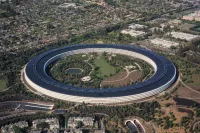
Apple Inc founded in and headquartered in Cupertino California is...
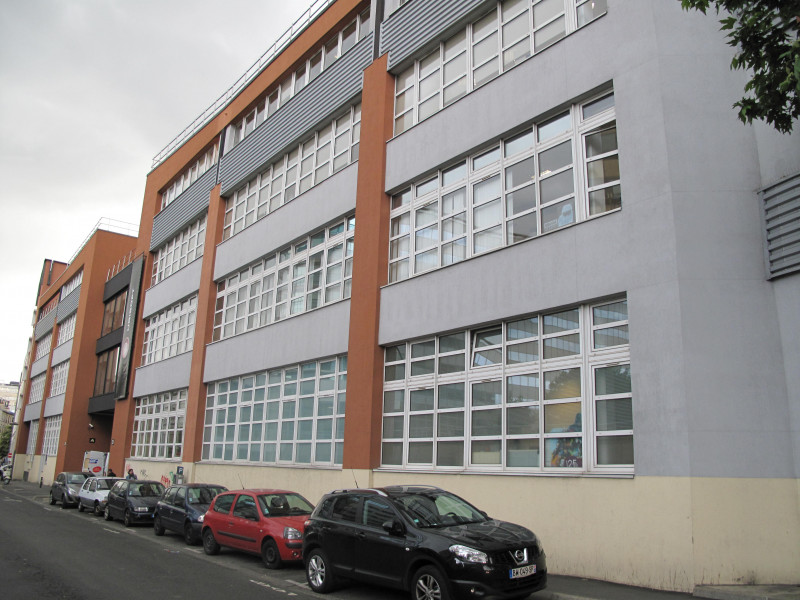
Ubisoft Entertainment SA is a French video game publisher with...
Ukraine is a country in Eastern Europe the second-largest on...
Facebook is a social media and networking service created in...
California is a U S state on the Pacific Coast...
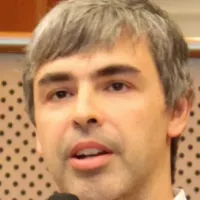
Larry Page is an American entrepreneur and computer scientist who...
Trending

42 minutes ago Hardy Boyz Rumored to Return to WWE: Negotiations and Potential Appearances Spark Excitement

2 hours ago Tsitsipas criticizes ATP over broken promises and inhumane Masters 1000 format.
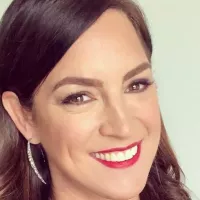
2 hours ago Sarah Spain Describes Feeling 'Ill' Near JD Vance at Winter Olympics

3 hours ago Priyanka Chopra shines at Harvard, credits Bollywood stars for Hollywood success.

4 hours ago Civil Rights Icon Jesse Jackson Passes Away at 84: A Legacy Remembered

1 day ago Democrats and Europe grapple with Trump's impact; Newsom says Trump unified Europe.
Popular

Jesse Jackson is an American civil rights activist politician and...
Randall Adam Fine is an American politician a Republican who...

Pam Bondi is an American attorney lobbyist and politician currently...

Kid Rock born Robert James Ritchie is an American musician...

Barack Obama the th U S President - was the...
The Winter Olympic Games a major international multi-sport event held...
